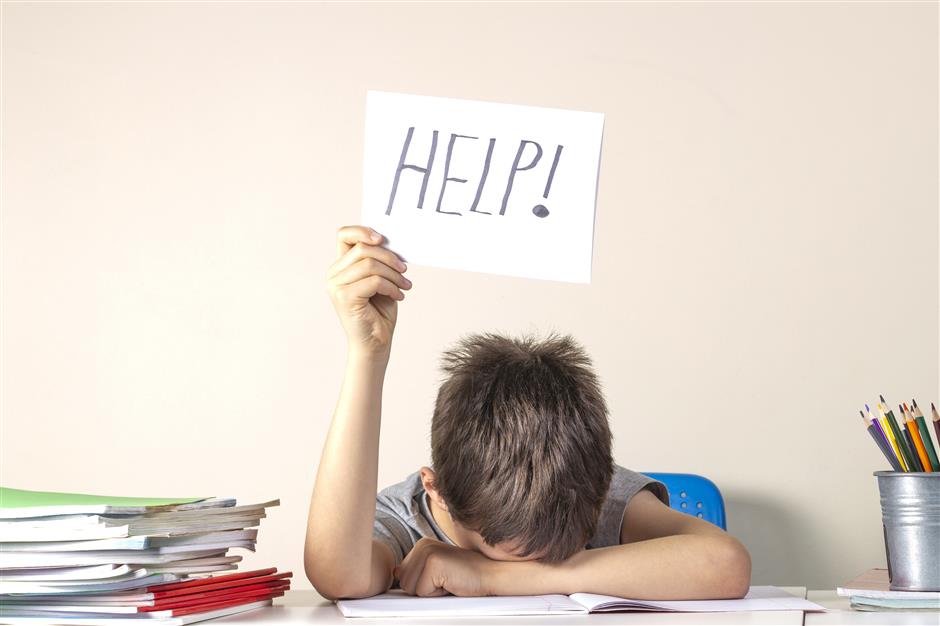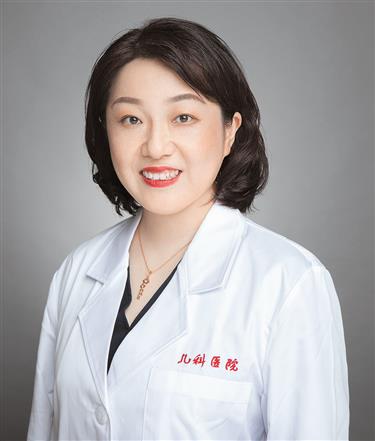Podcast: Children's clinic with a difference
Podcast: EP30
A photo of a clinical department specializing in "learning difficulties" went viral, piquing people's interest in the pediatric psychological department of Fudan University's Children's Hospital.
The clinic, which opened in 2020, has dealt with more than 1,500 children, mostly elementary and middle school students.

"We are not here to help children improve their academic performance, but to solve problems," said Dr Zhu Daqian, head of the psychological department. "Learning difficulties are frequently a trigger for emotional struggles and parent-child conflicts for many children and families."
The specialized clinic allows parents to figure out what is actually impeding their children's learning and causing all of the fear and fatigue, as well as "accompanying" the families in dealing with the stress.

Dr Zhu Daqian
Q: What are 'learning difficulties?' Is it similar to 'reading disabilities?'
A: Reading disabilities and cognitive dysfunction are only part of what we deal with at the clinic. It is not named after a certain medical term, but a description. Whether it is children who struggle to study or parents and teachers who believe their children are struggling in school, they can all come to us for assistance.
It could be poor academic performance in one subject, or it could be good academic performance but studying has become so painful that it has caused parent-child conflicts, or teachers believe the situation has become dangerous and recommend seeking medical advice.
I believe that as a child grows older, he or she will face difficulties in school, which is normal. Only when it becomes a serious problem that you are unable to manage, or when it threatens parent-child or teacher-student relationships, should you consult a psychiatrist.
Some of the children who came to us had neurodevelopmental disorders (NDDs), such as reading and writing disabilities, cognitive dysfunction, attention deficit hyperactivity disorder (ADHD), mental retardation (MR), or autism spectrum disorder (ASD), which would impair their partial or total learning ability.
Some children's learning abilities are intact, but due to common mental struggles such as depression and anxiety, or adjustment disorders when entering a new environment, or other emotional problems such as stress, their academic performance will suffer. What we do is make a decision and inform the parents about their children's academic difficulties.
Q: Do you see a rise in such cases in China?
A: We have definitely seen an increase in the number of families seeking our assistance who are suffering from such conditions.
There is a lot of debate about social involution. Parents have high expectations for their children and tend to be less tolerant of the conditions caused by NDDs or mental struggles.
In addition, there is an increase in depression and anxiety among teenagers, which affect children's cognitive function and thus their learning ability and efficiency.
Q: How does the clinic work?
A: During the first visit, the doctors will talk with the children and their families to find out what is bothering them. The child's growth and development, the education they received, each family member's educational concept, any conflicts, and the school conditions are all considered.
If children are explicit about their own ideas, we will also talk to them to see if they agree with their parents, in order to gain a better understanding of the overall situation.
Then we'll see if there's anything to be concerned about. If necessary, there will be additional physical examinations and neuropsychological evaluations.
It's difficult to tell whether a child is simply unable or unwilling to study. The two scenarios are frequently intertwined. Children with NDDs are frequently chastised for not paying enough attention or having difficulties reading and writing because their parents have no idea what is going on with their children. In the course of time, they become less eager to read and write because they do not want to fail again.
Children with mental illnesses may also have learning disabilities because emotional difficulties make it hard for them to concentrate, thus making them inefficient. Neuro-psychological evaluations, which quantify the abilities involved in learning, will show how a child compares to his or her peers.

Neuro-psychological evaluations will show how a child compares to his or her peers.
Q: What's the challenge during the talks?
A: Some parents brought their children here solely at the request of the teachers. They don't see anything wrong with their child and insisted that everything was fine.
Another issue is how parents accept the problem after evaluation. Some children, such as those with NDDs, cannot have their problems solved right away. It is critical that parents accept that their children are experiencing difficulties and may lag behind other children in order to find a way to assist them.
Some children with severe conditions, such as MR and ASD, will almost certainly never fully recover, even with medical intervention. If parents are unable to accept that, learn to adjust expectations and guide their children to learn what's best for them, it may not help even with rehab and medical intervention.
Some children have no problems with their learning abilities, but only with their mental struggles. We advise their parents to cut them some slack in their studies and focus on stress relief. However, parents are so concerned about falling behind in school that they refuse to work with us on therapy.
Q: Is it hard to talk to parents into facing the problem?
A: Some parents are relieved when they see the results and discover that the children were not fighting them on purpose. They then make an effort to understand their kids.
Q: How do children cope?
A: When a child is taken to the hospital, he or she is aware that something is wrong. We usually tell the younger kids that, after an evaluation, we discovered they have trouble concentrating. There will be some training to correct that, and they will be rewarded later. Most children accept that well.
 ?
?










